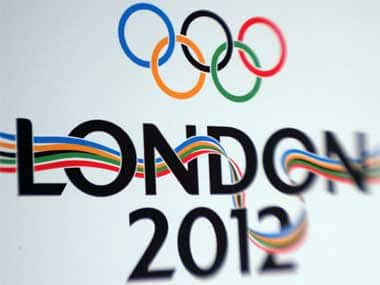London: Revelations that Dow Chemical might have flouted the ban of selling Union Carbide products in India have reignited a row over Dow’s sponsorship of the London 2012 Olympics. London Olympics organisers have been under pressure to end their agreement with Dow Chemical to provide decorative panels for the Olympic Stadium. The panels, which cost £7m, had been a victim of cost-cutting, but Dow agreed to pay for them in full, a move that is often referred to as a
gift to the British public in press reports
. Dow bought Union Carbide in 2001 and has been under pressure to pay for clean up of the site of the 1984 Bhopal chemical disaster at the plant of the then Indian subsidiary of Union Carbide as well as increase compensation to victims of the disaster. [caption id=“attachment_195352” align=“alignleft” width=“380” caption=“Dow’s position is that it is not responsible for events that happened long before it bought Union Carbide. Getty Images”]
 [/caption] Dow’s position is that it is not responsible for events that happened long before it bought Union Carbide. The case was
settled in 1989 for $470m, and that settlement has twice been upheld by the Indian Supreme Court
, George Hamilton, vice president of Dow Olympic Operations told Reuters. In January, a member of the Commission for a Sustainable London 2012, Meredith Alexander, resigned in protest over Dow’s sponsorship and statements from the commission that echoed Dow’s position that it bore no responsibility for Bhopal.
Writing in The Guardian, she said
:
[/caption] Dow’s position is that it is not responsible for events that happened long before it bought Union Carbide. The case was
settled in 1989 for $470m, and that settlement has twice been upheld by the Indian Supreme Court
, George Hamilton, vice president of Dow Olympic Operations told Reuters. In January, a member of the Commission for a Sustainable London 2012, Meredith Alexander, resigned in protest over Dow’s sponsorship and statements from the commission that echoed Dow’s position that it bore no responsibility for Bhopal.
Writing in The Guardian, she said
:
“I would like to see Dow take responsibility for the Bhopal tragedy and finally ensure that real justice is achieved for the victims and the families of those who died. This would be a true Olympic legacy.”
Row reignited However, the revelations that Union Carbide got around the ban of selling its products in India through sales via intermediaries, a practice which campaigners say continued after Dow bought the company have reignited the Olympics controversy. Campaigners say that documents obtained from a 2001 court case in the US show that Union Carbide continued to sell its products in India through a web of intermediary companies despite a 1992 Indian court ruling barring sales of Union Carbide products in the country without court approval. Dow Chemical has always tried to put distance between itself and Union Carbide, which it bought, the sale being completed in 2001. However, in a report by The Independent :
“Legal documents obtained by The Independent show that Dow continued to permit the unlawful practice started by Union Carbide Corporation (UCC), the company ultimately responsible for the disaster, after it bought the “tainted” company in February 2001.”
Alexander, the sustainability commissioner who resigned last month, said in response to the revelations:
“Dow’s statement that Union Carbide ‘exited India’ in 1994 is a direct contradiction to evidence in the American court. Dow claims to have no liability for compensating Bhopal’s victims, but they are clearly in control when it comes to maximising UCC profits. It seems Dow wants to have its cake and eat it.”
Dow has said in a statement that the 1992 court order did not apply to Union Carbide “products or technologies that were acquired overseas for valuable consideration and brought into India by separate companies”. Regardless, the documents could lend new weight with to calls from the Indian Olympic Association for London 2012 to terminate its deal with Dow Chemical . The bigger question is what role the documents might play in the Indian Supreme Court review of the settlement agreed by Union Carbide and its Indian subsidiary in the Bhopal disaster.
)